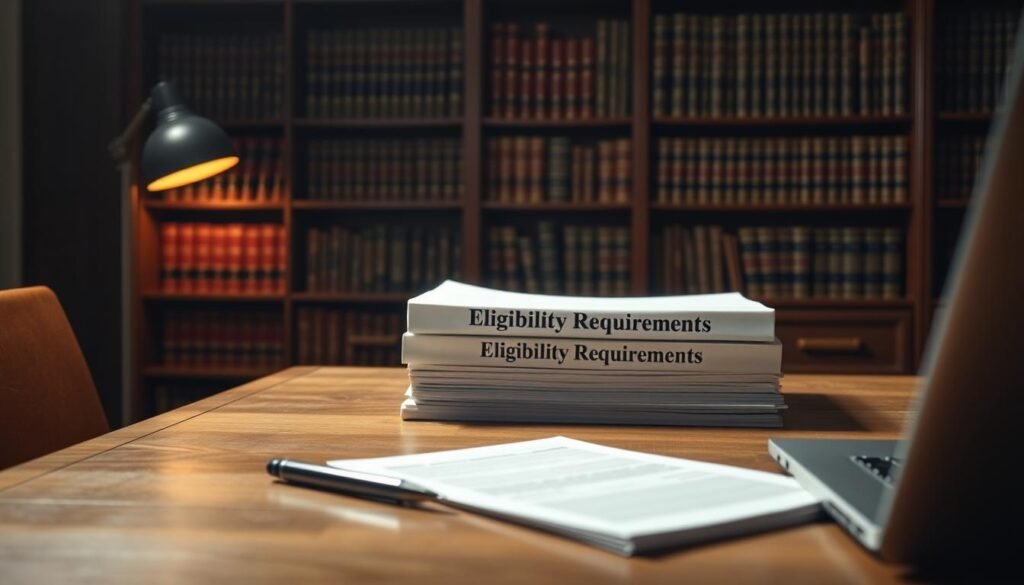Have you ever wondered what it takes to secure a long-term employment opportunity in Germany as a skilled professional? The blue card offers a streamlined solution for non-EU workers aiming to build a career in one of Europe’s strongest economies.
This permit is designed for highly qualified individuals, providing a pathway to work and reside in Germany. The application process involves submitting essential documents and meeting specific criteria, ensuring a smooth transition for the worker.
With benefits like potential permanent residency and a simplified process, the blue card is a preferred choice for employers and employees alike. Let’s explore how this opportunity can transform your career trajectory.
Key Takeaways
- The blue card is a work permit for skilled non-EU professionals in Germany.
- It requires a valid job offer and specific salary thresholds.
- The application process includes document submission and appointments.
- Holders can apply for permanent residency after a certain period.
- It’s ideal for long-term employment and career growth.
Understanding the EU Blue Card and Its Benefits
The EU Blue Card is a game-changer for skilled professionals seeking opportunities in Europe. Unlike a standard residence permit, this permit is tailored for highly qualified individuals. It allows them to live and work in Germany for up to four years, offering a clear path to long-term stability.

One of the standout features is its focus on qualification and degree standards. Applicants must have recognized academic credentials or equivalent professional experience. This ensures that only the most skilled workers benefit from the program.
What Is the EU Blue Card?
The EU Blue Card is a specialized work and residence permit for non-EU nationals. It’s designed to attract top talent to Germany and other participating EU countries. Holders can enjoy greater mobility within the EU, making it easier to pursue career opportunities across borders.
Advantages for Executive Professionals
For executive professionals, the benefits are significant. The card simplifies the process of bringing family members through family reunification visas. Additionally, after 18 months, holders can move to another EU country for work, enhancing career flexibility.
Employers play a crucial role in the application process. They provide essential information and sponsor the candidate, ensuring a smooth transition. This collaboration between the employer and the applicant is key to a successful application.
| Feature | Benefit |
|---|---|
| Long-term Residency | Pathway to permanent residency after 5 years |
| Family Reunification | Spouses and children can join without long delays |
| EU Mobility | Ability to work in other EU countries after 18 months |
| High Salary Threshold | Ensures competitive compensation for skilled workers |
Eligibility and Essential Requirements
Securing a long-term career in Germany requires meeting specific eligibility criteria. The process involves academic qualifications, salary thresholds, and employment conditions. Candidates must ensure they meet these standards to proceed with their card application.

Qualification and Degree Criteria
Applicants must hold recognized academic credentials or equivalent professional experience. A university degree from a tertiary program lasting at least three years is typically required. For those without formal degrees, five years of relevant experience may suffice.
It’s essential to verify that your qualifications meet German immigration standards. This step ensures a smooth process and avoids delays in your card application.
Minimum Salary and Employment Conditions
The employment contract must meet specific salary thresholds. As of 2025, the gross annual salary must be at least €48,300. For bottleneck professions, the threshold is slightly lower at €43,759.80.
Contracts must also last a minimum of six months. This ensures stability and compliance with immigration requirements. Candidates should initiate the card application eight weeks before their current residence title expires.
Proper documentation is crucial. Ensure all forms are complete and comply with German standards. This includes proof of qualifications, employment contracts, and health insurance coverage.
How to Get an EU Blue Card for Executive Jobs
Navigating the process of securing a work permit in Germany can seem complex, but understanding the steps makes it manageable. The journey begins with obtaining the correct visa and ends with finalizing your residence status. Each stage is crucial, ensuring compliance with German immigration laws.

Step-by-Step Process Overview
The first step is securing a visa before entering Germany. This involves booking an appointment at the German embassy in your home country. During this appointment, you’ll submit necessary documents, including proof of your salary and employment contract.
Once in Germany, you must register your address at the local Bürgeramt. This step is essential for obtaining your tax ID and finalizing your residence status. The final stage is submitting your application through the German portal, ensuring all requirements are met.
Highlights of the Application Journey
One of the key highlights is the emphasis on meeting salary thresholds. As of 2025, the minimum gross annual salary is €48,300, ensuring competitive compensation for skilled workers. For bottleneck professions, the threshold is slightly lower at €43,759.80.
Another critical aspect is the employment contract. It must last at least six months, providing stability and compliance with immigration laws. Candidates should initiate the application process eight weeks before their current residence title expires.
Adhering to these steps ensures a smooth transition and compliance with German immigration standards. By following this guide, you can confidently navigate the process and secure your work permit in Germany.
Navigating the Embassy Appointment and Registration Process
The journey to securing a work permit in Germany involves key steps that ensure a smooth transition. From booking an embassy appointment to registering your address, each stage is critical for compliance and success. Proper preparation and organization can save time and avoid unnecessary delays. Understanding the visa and work permit process is essential for meeting all legal requirements and ensuring a seamless move. Applicants must gather the necessary documents, such as employment contracts and health insurance proof, to present during their embassy appointment. Staying informed about any updates or policy changes can also help prevent unexpected obstacles.

Booking and Preparing for the Embassy Appointment
Securing an embassy appointment is the first step in the process. Candidates must gather essential documents, including a valid travel passport and biometric photos. Fees for the entry visa are €75, and additional costs may apply for document copies.
It’s crucial to book your appointment well in advance, as slots can fill up quickly. Ensure all photocopies of original certificates are organized and ready for submission. Proper preparation minimizes the risk of delays and ensures a smooth experience.
Registering in Germany and Obtaining a Tax ID
Once in Germany, the next step is registering your address at the local Bürgeramt. This process is mandatory and must be completed within 15 days of arrival. The appointment typically lasts around 15 minutes and incurs no fee.
After registration, you’ll receive a tax ID, which is essential for employment and financial transactions. Ensure all documentation, from the embassy appointment confirmation to your residence details, is properly organized. This step finalizes your legal status in Germany.
By managing these appointments effectively, you can streamline the process and focus on building your career in Germany. Proper planning and attention to detail are key to a successful transition.
Document Preparation and Application Essentials
Preparing the right documents is a critical step in ensuring a successful application process. The accuracy and completeness of your submission can significantly impact the outcome. We’ll guide you through the essential documents, verification tips, and online application strategies to streamline your journey.
Required Documents and Verification
To apply, you’ll need several key documents. These include a valid passport, a signed employment contract, and proof of health insurance. Academic and professional certificates must be validated and recognized by German authorities. Verification ensures your qualifications meet the required standards.
Here’s a detailed list of the necessary documents:
| Document | Purpose |
|---|---|
| Passport | Proof of identity and nationality |
| Employment Contract | Confirms job offer and salary details |
| Academic Certificates | Validates qualifications |
| Health Insurance Proof | Ensures coverage during stay |
| Application Fee Receipt | Confirms payment of service fee |
Online Application Tips and Tricks
The online application process requires precision and attention to detail. Start by ensuring all documents are scanned clearly and meet the specified file size limits. Pay the service fee before submission to avoid delays. Double-check each field for accuracy to prevent processing errors.
Here are some practical tips:
- Maintain digital and hard copies of all submitted documents.
- Use official guidelines to fill out the form correctly.
- Submit the application well before deadlines to account for potential delays.
By following these steps, you can enhance your chances of a smooth and successful application process.
Managing Employment Contracts and Sponsor Obligations
A well-structured employment contract is the foundation of a successful work permit application. It ensures clarity in terms and aligns with the candidate’s specialist skills. Employers and employees must work together to meet legal and contractual requirements.
Job Contract Guidelines for Compliance
The contract must clearly define the work role, duration, and salary. It should match the candidate’s qualifications and experience. German labor laws require contracts to last at least six months, providing stability for both parties.
Relevant experience and specialist skills are critical during the application review. Employers must ensure the role aligns with the candidate’s expertise. This alignment not only meets compliance standards but also expedites the approval process.
Employer Sponsorship Responsibilities
Employers play a vital role in sponsoring candidates. They must verify the candidate’s qualifications and ensure the job meets salary thresholds. As of 2025, the minimum gross annual salary is €48,300, ensuring competitive compensation.
Clear communication between the employer and candidate is essential. Both parties must understand their obligations, from contract terms to compliance with German labor laws. This collaboration ensures a smooth transition and long-term success.
Leveraging Immigration Services and Fast-Track Options
Partnering with global immigration services can simplify the process significantly. These platforms consolidate paperwork, manage appointments, and address issues like document uploads, including biometric photos. For skilled professionals, this means less stress and more focus on career goals.
Utilizing Global Immigration Platforms
Global platforms like Deel streamline the application process. They handle everything from document verification to scheduling embassy appointments. This ensures that all skill certifications and photo requirements are met without delays.
These services also manage applications for family members. Spouses and children can be included seamlessly, ensuring that the entire family transitions smoothly. This is particularly beneficial for executives relocating with their loved ones.
Fast-Track and Streamlined Procedures
Fast-track options are available to reduce waiting times. Specialized services expedite the review of skill documentation and photo submissions. This ensures compliance while speeding up the process.
For those relocating with family members, these platforms handle all related applications. This includes verifying family details and ensuring that all photo requirements are met. The result is a hassle-free experience for everyone involved.
By leveraging these services, professionals can focus on their roles while experts handle the logistics. This approach not only saves time but also ensures accuracy and compliance at every step.
Final Steps and Preparing for Your New Executive Future
Completing the final steps ensures a smooth transition into your new role abroad. After your biometric appointment, the official issuance of your permit typically takes six to ten weeks. Use this time to plan your entry and prepare for settling in Germany.
Understanding the duration of your stay and your executive responsibilities is crucial. This includes organizing accommodation, learning about local culture, and connecting with your new team. These preparations will help you integrate seamlessly into your professional environment.
We recommend approaching this process with confidence, using the insights and practical steps provided in our guide. Whether you’re relocating alone or with family members, thorough preparation ensures a successful start to your executive future in Germany.
